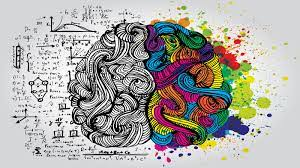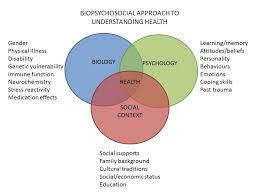Q. Discuss the interrelationships between social psychology and other disciplines.
Social psychology
is a dynamic and integrative field within the broader domain of psychology,
focused on understanding how individuals' thoughts, feelings, and behaviors are
influenced by the actual, imagined, or implied presence of others. This
multidisciplinary nature of social psychology often results in significant
overlap with various other academic disciplines, including sociology,
anthropology, political science, economics, biology, and even fields such as
communication studies and education. Each of these disciplines contributes to a
more comprehensive understanding of human behavior within social contexts. In
this exploration, I will discuss the interrelationships between social
psychology and several key disciplines, highlighting how they inform, enhance,
and intersect with each other to provide a more holistic view of the factors
that influence human social behavior.
Social Psychology and Sociology
The relationship between social psychology and
sociology is foundational to the study of human behavior in social contexts.
While both fields examine social behavior, they differ primarily in their scope
and focus. Social psychology tends to focus on the individual and the ways in
which individuals' behaviors, attitudes, and perceptions are influenced by
others in their immediate social environments. In contrast, sociology focuses
on broader societal structures, institutions, and systems that shape collective
behaviors and societal trends.
Despite these differences, the fields of social
psychology and sociology are deeply interconnected. For instance, social
psychologists often study group dynamics, conformity, and social
influence—topics that overlap with sociological interests in social norms,
institutions, and societal roles. Both disciplines are concerned with
understanding how individuals interact within social structures, but social
psychology emphasizes how personal cognitive and emotional processes, such as
attitudes, motivations, and perceptions, are influenced by social contexts,
while sociology typically examines larger-scale patterns of social behavior.
Moreover, social psychologists often draw on
sociological theories to better understand the effects of social structures on
individual behavior. For example, the concept of social identity, which is
central to both social psychology and sociology, explores how individuals'
identities are shaped by their affiliations with social groups (e.g., ethnic,
gender, or socioeconomic groups). Social psychologists, influenced by
sociological perspectives, may investigate how group membership affects
individual self-concept, behavior, and decision-making, while sociologists
focus more on how group identity intersects with societal power dynamics, such
as race, class, and gender.
In practice, social psychologists use sociological
methods to study group behavior and social phenomena, often conducting
experiments or surveys that reveal how social norms or group membership affect
individual attitudes and behaviors. Sociologists, in turn, benefit from social
psychological research by gaining insight into the cognitive and emotional
mechanisms that underlie social patterns, such as prejudice, discrimination, or
social movements.
Social Psychology and Anthropology
Anthropology, particularly cultural anthropology,
shares a significant overlap with social psychology in its focus on
understanding human behavior within social and cultural contexts. While
anthropology takes a more holistic and often historical approach to
understanding human cultures and societies, social psychology seeks to
understand the psychological mechanisms behind social behaviors, focusing on
the individual within the group.
Anthropology provides valuable cultural insights that
social psychologists can use to explore how culture shapes individuals'
perceptions, attitudes, and behaviors. For example, social psychologists may
investigate how cultural norms and values influence behavior, such as the roles
of collectivism and individualism in shaping social interactions. Anthropology,
with its emphasis on the study of cultural traditions, rituals, and practices,
helps social psychologists understand how these cultural elements affect the
way individuals think and behave in different social contexts. This
collaboration can be seen in studies of cross-cultural psychology, where
researchers compare how social behavior differs across cultures, providing a
deeper understanding of the influence of culture on cognitive processes, such
as perception, memory, and decision-making.
Moreover, social psychologists often rely on
ethnographic methods—common in anthropology—to collect data in real-world
settings. By participating in or observing cultural rituals or practices,
social psychologists gain insight into the social processes at play, such as
the formation of group identities or the negotiation of power and status within
communities. Conversely, anthropologists may draw on social psychological
theories, such as social identity theory or social cognitive theory, to analyze
how individuals within a particular culture form attitudes, develop prejudices,
or experience socialization.
One example of the intersection of anthropology and
social psychology is the study of the influence of cultural practices on behaviors
such as aggression, cooperation, or altruism. While anthropology might focus on
the historical or cultural roots of such behaviors, social psychology delves
into the individual-level psychological processes, such as the role of
socialization in shaping how people respond to these practices.
Social Psychology and Political Science
Political science and social psychology intersect in
the study of political behavior, particularly in areas such as voting behavior,
political attitudes, and public opinion. Social psychology contributes to
political science by offering insights into how social factors, such as group
identification, social influence, and conformity, affect political
decision-making and participation.
One key area of overlap between the two fields is the study of political socialization, which examines how individuals develop their political beliefs and attitudes over time. Social psychologists have contributed to this area by investigating the psychological mechanisms behind political ideology, partisanship, and the role of family, media, and peers in shaping political attitudes. For example, social psychologists explore how social identity—such as national, ethnic, or political group identity—shapes political behavior and the formation of in-group versus out-group biases. In political science, this understanding is crucial for analyzing political polarization, the dynamics of political campaigns, and the influence of group identity on voting behavior.
Another important area of overlap is the study of
persuasion and attitude change, which is central to both social psychology and
political science. Social psychologists investigate how messages, media, and
communication tactics influence individual attitudes and political opinions,
such as the role of framing, emotional appeals, or the credibility of political
figures. Political scientists apply these findings to understand how political
campaigns and media influence voters' decisions and political behavior,
especially in election contexts.
Additionally, social psychology and political science
converge in the study of collective action, protest movements, and political
mobilization. Social psychologists examine how group dynamics, leadership, and
social identity influence people's decisions to participate in social
movements, while political scientists explore the broader social and political
conditions that facilitate or hinder such movements. The interdisciplinary
collaboration between these fields helps to explain why individuals and groups
engage in political activism, protest, or collective action in support of or
opposition to political causes.
Social Psychology and Economics
Social psychology and economics intersect in the
growing field of behavioral economics, which seeks to understand how psychological
factors influence economic decision-making. Traditional economics assumes that
individuals are rational actors who make decisions based on logical reasoning
and utility maximization. In contrast, behavioral economics acknowledges that
human behavior often deviates from rationality due to cognitive biases,
emotions, and social influences—concepts that are central to social psychology.
Social psychologists contribute to economics by
providing insights into how social factors, such as social norms, peer
influence, and group identity, shape economic behavior. For example, social
psychologists study how individuals' decisions in economic contexts are
affected by factors like fairness, trust, and reciprocity. These social
psychological principles help explain why people may make decisions that are
not economically rational, such as overvaluing social relationships or failing
to consider long-term consequences. The concept of "social
preferences" in economics, which addresses how individuals care about the
well-being of others, is closely related to social psychological research on
empathy, cooperation, and altruism.
One area where social psychology and economics
intersect is in the study of consumer behavior. Social psychologists
investigate how advertising, marketing, and social influences (such as
conformity or social comparison) shape consumers' purchasing decisions. They
examine how factors like perceived status, group affiliation, or social
identity influence consumer preferences and behavior. Behavioral economics
builds on these insights, providing a more comprehensive understanding of
economic decisions by accounting for both psychological and social factors.
Another example is the study of decision-making under
uncertainty. Social psychologists have contributed to understanding how
emotions, heuristics, and biases—such as loss aversion or overconfidence—affect
economic choices. Economic theories now recognize that human decision-making is
influenced by social context, emotion, and cognitive limitations, areas
traditionally studied in social psychology.
Social Psychology and Biology
The intersection of social psychology and biology is
critical for understanding the biological underpinnings of social behavior.
Evolutionary psychology, a subfield that bridges these disciplines, posits that
many social behaviors, such as cooperation, aggression, and altruism, have
evolved as adaptive responses to environmental pressures. Social psychologists
working within this framework examine how biological mechanisms, such as brain
activity, hormones, and genetic predispositions, influence social behavior.
For instance, social psychologists may study how the
release of oxytocin—a hormone associated with bonding and social
affiliation—affects individuals' behaviors in social contexts, such as
cooperation or trust. Similarly, research on mirror neurons, which are involved
in empathy and understanding others' emotions, is relevant for understanding
how people form social bonds and interact with others on a neural level.
Additionally, social psychology benefits from
biological approaches such as neuroimaging, which allows researchers to explore
how brain activity correlates with social behavior. For example, studies using
fMRI (functional magnetic resonance imaging) can reveal how the brain processes
social information, such as facial expressions or group membership, and how
these neural processes influence behavior.
Social psychology and biology also intersect in the
study of the evolutionary basis of social behavior. Evolutionary social
psychology examines how human social behaviors may have evolved to increase
reproductive success or survival. This includes the study of kinship, mate
selection, and in-group versus out-group dynamics. Social psychologists who
adopt an evolutionary perspective explore how human social behavior is shaped
by genetic predispositions and how these behaviors might manifest in
contemporary social contexts.
Conclusion
In conclusion, social psychology's interrelationships
with other disciplines—such as sociology, anthropology, political science,
economics, biology, and others—demonstrate the field's broad applicability and
interdisciplinary nature. Each of these fields contributes valuable insights
into understanding human behavior in social contexts. Sociology provides a
broader structural perspective on societal influences, while anthropology
offers cultural insights that enhance the understanding of individual and group
behavior. Political science draws from social psychology to explain political
behavior and social movements, while economics incorporates psychological
factors into economic decision-making through behavioral economics. Finally,
biology offers insights into the biological and evolutionary roots of social
behaviors.
By
collaborating with these disciplines, social psychology can adopt a more
integrated approach to studying human behavior, bridging individual
psychological processes with broader social, cultural, and biological factors.
These interrelationships enrich the field, allowing for a more comprehensive
understanding of how individuals interact within their social environments and
how those interactions, in turn, shape society as a whole. Through this
interdisciplinary lens, social psychology continues to evolve, offering
valuable insights into the complexities of human social behavior.











0 comments:
Note: Only a member of this blog may post a comment.